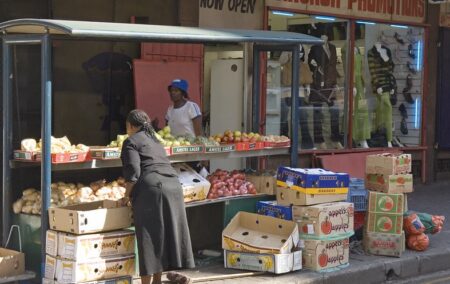Traditionally, a victimless crime was an attempt to save individuals from themselves, usually by the imposition of personal moral values on a non-consenting sinner. This typically resulted in many unintended consequences, most of them negative — if not downright destructive.
For example, in 1885 the British Parliament passed the Labouchere Amendment that made it easier to send gay men, and only men, to jail for being gay. It was soon labeled the Blackmailer’s Charter, as it inspired genuine criminals to blackmail their victims, as the 1961 film “Victim” so aptly showed.
The United States saw negative consequences from Prohibition, with the rise of organised crime and greater violent crime.
In the UK, Labouchere’s amendment resulted in negative consequences because it criminalised a whole class of people who were not violating the rights of others. Instead of protecting the rights of people, the law violated them. This is the case when entire groups are deemed ‘illegal’ when they aren’t violating the rights of others.
The newer forms of victimless crime are those criminal offences that violate the rights of no one and may actually be beneficial to the individuals involved. But political authority has, often for very self-serving reasons, made such things illegal. Instead of protecting rights, government actively violates them. One example is street trading.
N. Ngcobo, in The informal economy for local economic development in South Africa, noted: ‘The informal sector in South Africa constitutes the fulcrum of LED (local economic development), and the overall economy of local communities. This is particularly important, because the informal economy accounts for 18 percent of the employed population of South Africa. For instance, the street trading sector exclusively ensures that more than an estimated 813 000 households live above the poverty line’.
If the regulators were successful, there would be an additional 813,000 households in poverty and a significant increase in unemployment. Each time regulators enforced the law they would inflict harm. Yet the vendors and their customers benefit from their transactions. The argument of old victimless crime laws — that the state is protecting people from harming themselves — is even more bogus than it was with the original laws.
Some complain that street vendors sitting on the sidewalk are a nuisance, yet they actively demand that vendors be prevented from building physical stalls to display their goods and produce. Why invest in a proper stall if the government may sweep in a day later and destroy it?
Around the world we find people living in informal settlements, and yet governments actively work to strip them of their homes. Legal impediments make it almost impossible for the very poor and less educated to formalise their living arrangements. Such laws, justified or not, are not easily complied with if they cost money that people don’t have, or require a modicum of education that they haven’t achieved.
The World Economic Forum (WEF) says that almost 1.1 billion people globally are unable to purchase affordable housing. While many of them wish to improve their housing and could do so, they risk losing their investment every day, as they may have no formal ownership of their homes.
The WEF says that one solution is to abolish this economic victimless crime by ensuring that ‘residents of informal settlements have secure rights to the land they inhabit’.
Individuals who do not have security of title in the property they “own” will not develop that property to its potential. Not only must individuals have secure title to their property, but they must be allowed to trade the property when it suits their purposes. A home which cannot be sold is also not as likely to be maintained as well as a home that can be.
The inability of so many to use the value of their property as collateral due to lack of formal ownership means that vast amounts of wealth in the country are what Hernando de Soto called ‘dead capital’. This slows the improvement process and limits the options of the owners. The value of dead capital is far greater than anyone imagines. That is without taking into account how these values are reduced because of the insecurity of ownership.
The WEF estimates that improved housing in informal settlements, one result of title security, ‘would enable millions of children to attend school and increase some countries’ GDP by more than 10%’.
Often these regulations are meant to protect the poor, but instead they force the poor to violate the law or stagnate. When legitimate human actions are made illegal, people become poorer. Instead of improving the lot of the poor, such regulations make them worse off.
Protecting people from criminals is one thing; protecting them from themselves quite another. Like all victimless crime laws, these laws only make matters worse. They can turn entire groups of people into criminals by legislative fiat.
The views of the writer are not necessarily the views of the Daily Friend or the IRR.
If you like what you have just read, support the Daily Friend.

